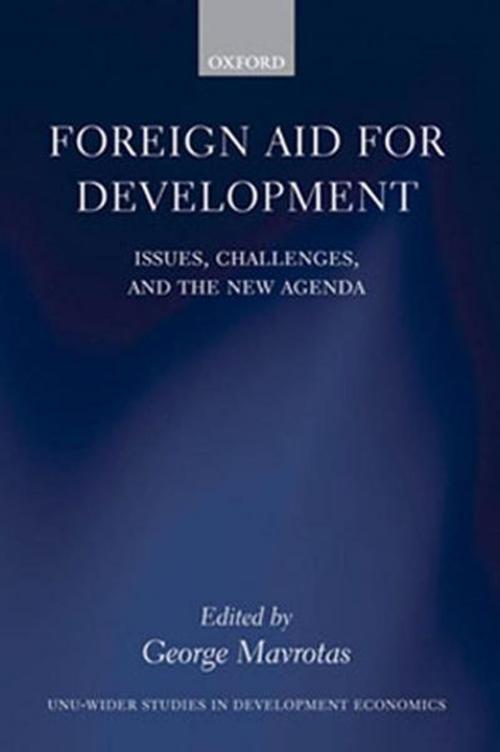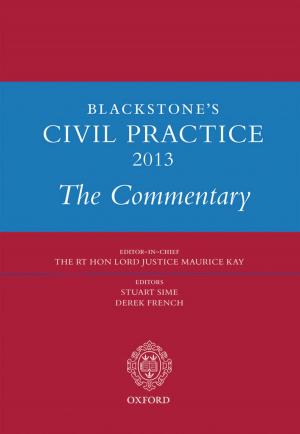Foreign Aid for Development
Issues, Challenges, and the New Agenda
Business & Finance, Economics, Sustainable Development, Nonfiction, Reference & Language, Reference| Author: | ISBN: | 9780191610448 | |
| Publisher: | OUP Oxford | Publication: | February 25, 2010 |
| Imprint: | OUP Oxford | Language: | English |
| Author: | |
| ISBN: | 9780191610448 |
| Publisher: | OUP Oxford |
| Publication: | February 25, 2010 |
| Imprint: | OUP Oxford |
| Language: | English |
Foreign aid is one of the few topics in the development discourse with such an uninterrupted, yet volatile history in terms of interest and attention from academics, policymakers, and practitioners alike. Does aid work in promoting growth and reducing poverty in the developing world? Will a new 'big push' approach accelerate progress towards the Millennium Development Goals or will another opportunity be missed? Can the lessons of almost half a century of aid giving be learnt? These are truly important questions in view of the emerging new landscape in foreign aid and recent developments related to the global financial crisis, which are expected to have far reaching implications for both donors and recipients engaged in this area. Against this shifting aid landscape, there is a pressing need to evaluate progress to date and shed new light on emerging issues and agendas. This volume brings together leading aid experts to review the progress achieved so far, identify the challenges ahead, and discuss the emerging policy agenda in foreign aid. A central conclusion of this important and timely volume is that, since development aid remains crucial for many developing countries, a huge effort is needed from both donors and aid recipients to overcome the inefficiencies and make aid work better for poor people. After all, as global citizens, we have a moral obligation to do the best we can to lift people out of poverty in the developing world. The findings of this book will be of considerable interest to professionals and policymakers engaged in policy reforms in foreign aid, and provide an essential one-stop reference for students of development, international finance, and economics.
Foreign aid is one of the few topics in the development discourse with such an uninterrupted, yet volatile history in terms of interest and attention from academics, policymakers, and practitioners alike. Does aid work in promoting growth and reducing poverty in the developing world? Will a new 'big push' approach accelerate progress towards the Millennium Development Goals or will another opportunity be missed? Can the lessons of almost half a century of aid giving be learnt? These are truly important questions in view of the emerging new landscape in foreign aid and recent developments related to the global financial crisis, which are expected to have far reaching implications for both donors and recipients engaged in this area. Against this shifting aid landscape, there is a pressing need to evaluate progress to date and shed new light on emerging issues and agendas. This volume brings together leading aid experts to review the progress achieved so far, identify the challenges ahead, and discuss the emerging policy agenda in foreign aid. A central conclusion of this important and timely volume is that, since development aid remains crucial for many developing countries, a huge effort is needed from both donors and aid recipients to overcome the inefficiencies and make aid work better for poor people. After all, as global citizens, we have a moral obligation to do the best we can to lift people out of poverty in the developing world. The findings of this book will be of considerable interest to professionals and policymakers engaged in policy reforms in foreign aid, and provide an essential one-stop reference for students of development, international finance, and economics.















